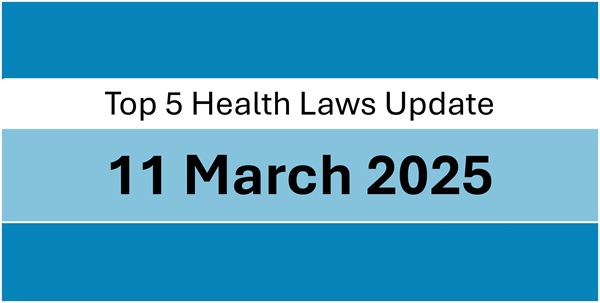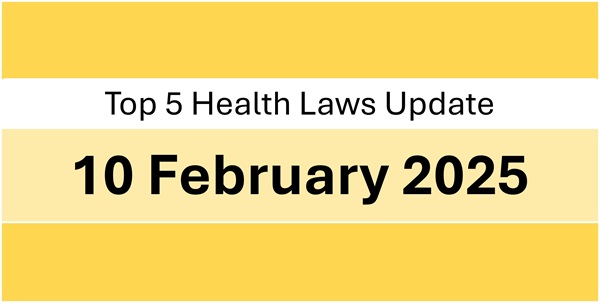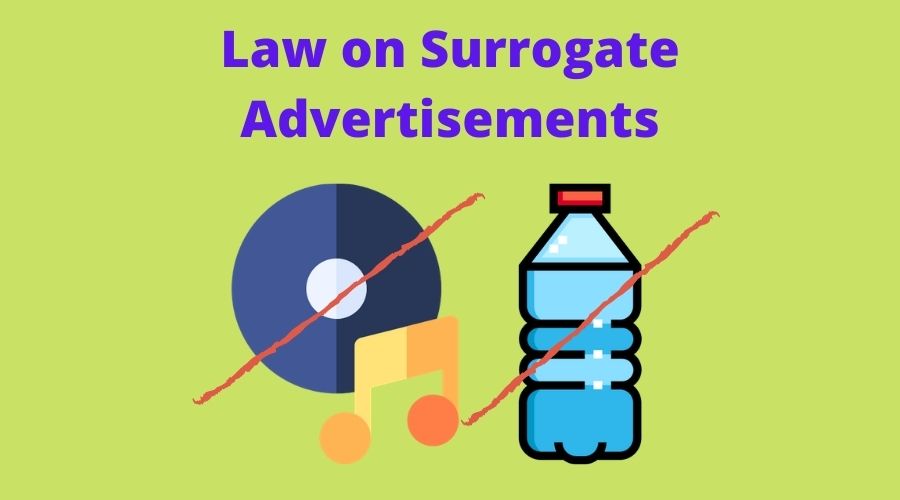Last
updated: June, 2019
May 31 is
observed every year as the World Anti-Tobacco Day. On May 31 of 2019, The
Indian Council of Medical Research (ICMR), the apex bio-medical research body
of the Indian government, issued a formal recommendation to ban the sale of e-cigarettes and
electronic nicotine delivery systems (ENDS) through-out India. The ICMR
recommendation has come at an opportune time since, very recently,
the Delhi High Court has stayed the operation of a
Central Government circular imploring various Indian States to ban
ENDS.
In this
post, we have analyzed the current regulatory framework for the regulation of
e-cigarettes and ENDS (hereinafter referred collectively as ENDS for
convenience) to evaluate its scope and limitations, as well as decode
the method of current regulation of ENDS under Indian law. We have also
highlighted the consequences of violation of the ban, if any.
Legal and
regulatory framework
Under Indian
law, there are five distinct regulatory buckets in which ENDS may fall:
- ENDS as a combination product
of drug and medical device
- ENDS as a tobacco product
- ENDS (nicotine) as food
- ENDS (nicotine) as a poison
- ENDS (nicotine) as an
insecticide
We will deal
with each regulatory bucket in the paragraphs below.
Combination of Drug and Medical Device
Preparations
of nicotine are regulated as a drug in India. In fact, the sale of gums and
lozenges containing more than 2 mg of nicotine requires a retail drug license.
As per a
survey carried by the author, most States in India have regulated ENDS as a
drug (since substances and devices are deemed to be drugs in India). Under the
Drugs and Cosmetics Act, 1940 and its rules (“Drug Laws“), a
license is required to import, manufacture and sell drugs. Wherever State Governments
have banned ENDS, they have done so by refusing to issue a license to undertake
any commercial activity related to ENDS on the grounds that ENDS is not
approved for sale as a drug. This position has been endorsed by the Central
Government as well, who had released in advisory for all States in India to
that effect in August 2018.
Import,
manufacture or sale of ENDS in violation of Drug Laws could result in
confiscation, fine and imprisonment for the company involved as well as the
person in charge of the operations of the company.
However, two
separate Delhi High Court orders have raised serious questions over the legal
basis of the ban on ENDS. In Piush Ahulawalia v. Union of India, the
Delhi High Court clarified that the Central Government’s
advisory was not binding, and therefore the State Governments were free to
chart their own course in terms of banning (or not banning) ENDS. In Focus
Brand Trading India Pvt. Ltd. and Anr v. DGHS and Ors., the Delhi
High Court went a step ahead and questioned whether ENDS could be regulated as
the drug in the first place. The March 2019 order passed in this matter
effectively brings into question any ban enforced on ENDS on the assumption
that ENDS is a drug. A Customs notification released in November 2018 had made it mandatory
that import consignments of ENDS would require prior approval of
Additional Drugs Controller, Customs. The said notification has also been
stayed by the March 2019 order.
In the
author’s own considered opinion, however, the government is well within its
powers to regulate ENDS as a drug. It is a fact that nicotine is a drug. As per
the current construct of Drug Laws, a drug when consumed for non-medicinal
purpose would remain a drug and be regulated as one. Therefore, what is
actually left to be established whether the system i.e. ENDS is drug or not. As
most readers are aware, ENDS is just a system that delivers nicotine.
Therefore, it is not a chemical but a device. Drug Laws do not regulate all
devices. They regulate notified devices only and ENDS is not a notified device.
Therefore, ENDS sans nicotine cannot be said to be regulated under the Drug
Laws. But a combination of ENDS with nicotine (i.e. refill) should certainly
qualify as a drug. There are enough instances where such combination products
have been regulated as drugs in India in the past. For instance, a Glucometer by
itself is not a drug (at least not until January 1, 2020). But a Glucometer
when sold along with glucose strips is regulated as a drug, because glucose
strips are regulated as drugs. This analogy squarely applies to ENDS sold with
nicotine refills.
Having said
that, what is important to remember that the Drugs Laws do not ban ENDS with
nicotine refills. Therefore, it is possible to structure business operations in
a manner that it would be lawful to carry out the business of ENDS with
nicotine refills under a drug license in India.
ENDS as a Tobacco product
Most
jurisdictions around the world, including the US and Europe, regulate ENDS as a
tobacco product. In India, tobacco products are regulated by law, but in a
limited manner. The Cigarette and Other Tobacco Products Act, 2003 and its
rules (“Tobacco Laws”) regulate advertisement, sale to minors and
labelling of cigarettes and tobacco products, but stop short of giving
power to the government to ban a tobacco product in India. In other words, the
Tobacco Laws in India impose compliance requirements for cigarettes and tobacco
products, but the government cannot use it to ban import, manufacture or sale
of tobacco product in India so long as the tobacco products are compliant to
the requirements stipulated by law. Interestingly, the definition of ‘tobacco
product’ under Tobacco Laws is exhaustive, and it means any product that is
listed in the Schedule to the main Act. ENDS is not listed in that Schedule
yet. Therefore, it is strongly arguable that Tobacco Laws in India do not apply
to ENDS at all.
Suffice it
is to say that the Tobacco Laws, as they exist today, do not (read cannot) ban
the sale of ENDS with nicotine refills.
ENDS as food
Food in
India is regulated by the Food Safety and Standards Act, 2006 and the rules and
regulations made under it (“Food Laws”). The definition of
“food” under India’s Food Laws extends to substances in the form of
liquid, gas or vapour. Therefore, nicotine, when consumed in form of gas or
vapour, may qualify as food. The consumption of nicotine as a food ingredient
has been specifically banned under Food Laws. States such as Tamil Nadu
and Union Territories like New Delhi have also issued notifications (1, 2) banning “all food products chewable or
otherwise… containing tobacco and/or nicotine as ingredients”
in public interest for successive periods of one year.
This makes
it unequivocally clear that any food containing nicotine cannot be sold in
India. It is but natural to conclude that the language of the ban would engulf
ENDS with nicotine refills as well. A violation of Food Laws could result
in confiscation, fine and imprisonment for the company involved as well as the
person in charge of the operations of the company.
However, the
ban on products containing nicotine imposed through food laws is not
without controversy. Over the last few years, different High Courts have
given contrary decisions on whether tobacco products should be regulated
exclusively under Tobacco Laws or both Tobacco and Food Laws. A February 2019 Madras High Court judgement has highlighted this
contrarian position as well. Therefore, until the Supreme Court of India
decides on this issue, it is possible to argue today that ENDS with nicotine
refills should not be regulated as food, but rather as a tobacco product and be
governed exclusively by the Tobacco Laws (which incidentally does not give
power to the government to ban ENDS). This means that the ban on nicotine as
food or food ingredient may have no bearing on ENDS with nicotine
refills.
ENDS as a
poison
India
regulates import and sale of poisons, in the same manner as drugs. A license is
required to import or sell poisons. The difference between drug regulation and
poison regulation is that every state has the power to notify any chemical as a
poison and regulate it (this legal position has been upheld by Supreme Court as well). Thus, given the ambiguity
surrounding the application of drug regulation to ENDS, some states in India
have decided to notify nicotine as a poison under the Poisons Act, 1919 and
thus regulate ENDS. For instance, Punjab has regulated nicotine as a poison since 2014.
A violation
of the Poisons Act, 1919 could result in confiscation, fine and imprisonment.
Again, like
drug regulations, the Poisons Act, 1919 does not ban the sale of ENDS with
nicotine refills. Therefore, it is possible to structure business operations in
a manner that it would be lawful to carry out the business of ENDS with
nicotine refills under a poisons license in India.
ENDS
(nicotine) as an insecticide
The
chemical, Nicotine Sulphate, and preparations made out of it, have been
identified as insecticide under the Insecticides Act, 1968. Any person desiring
to import or manufacture or sell an insecticide requires regulatory clearance
from the government.
However,
Insecticides Act, 1968 itself exempts “Any substance specified or
included in the schedule or any preparation containing any one or more such
substances, if such substance or preparation is intended for purposes other
than preventing, destroying, repelling or mitigating any insects, rodents,
fungi, weeds and other forms of plant or animal life not useful to human beings“.
Due to the said exemption, the fact that nicotine sulphate and its preparations
are insecticides has no bearing for ENDS with nicotine refills, because it not
intended to be used as an insecticide.
Takeaways
On the
strength of the above analysis, it is difficult to say that trade in ENDS has
been conclusively or comprehensively banned in India. It is true that some
states such as Punjab, Tamil Nadu and Karnataka have banned the trade of ENDS
within their territory, but such a ban does not appear to have a very strong
backing of a statute. This becomes more evident as one peruses the actual text
of the administrative orders through which the ban has been imposed, because
there is hardly, if any, statutory provision cited in those orders to support
the ban and the government appears to be relying solely on “public
interest” to support its stance. Numerous media reports (1, 2) have also indicated that the government is
struggling to find a way to ban ENDS. Therefore, it appears that the stage
is set for the courts, especially the Supreme Court, to clarify the position on
the so-called ban on ENDS in India. Until then, it cannot be said that it is
not possible to do the business of ENDS in India.







